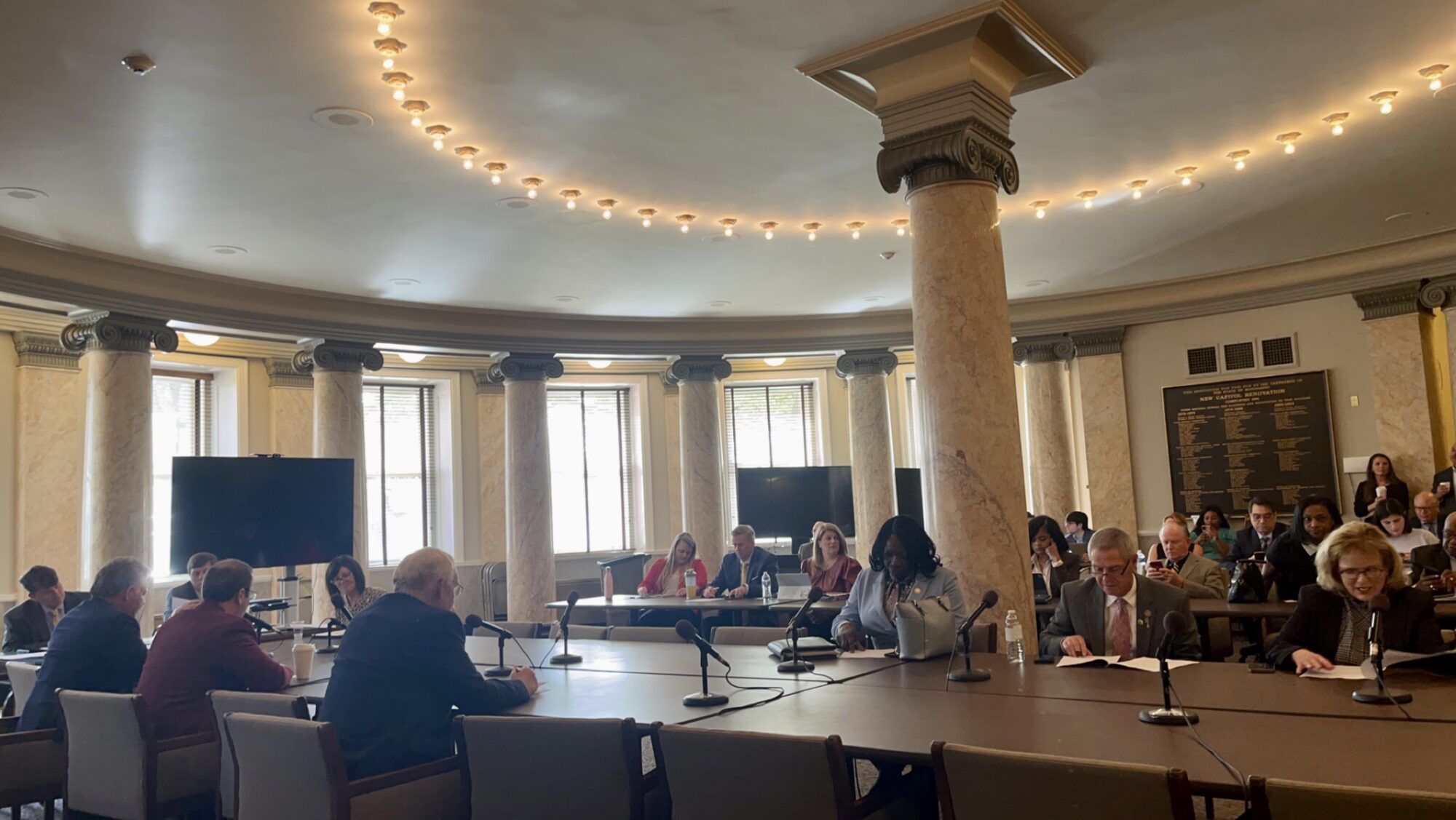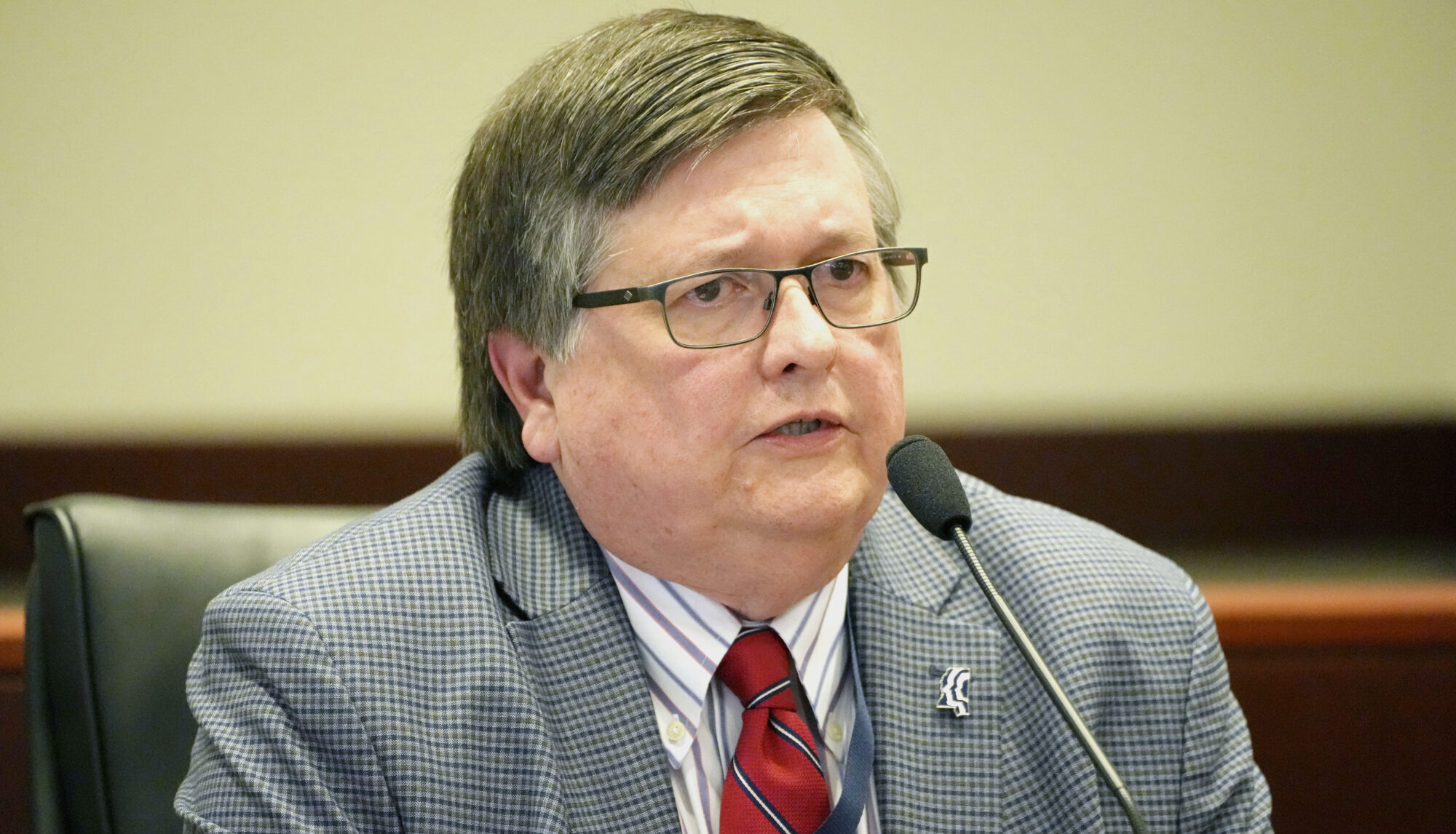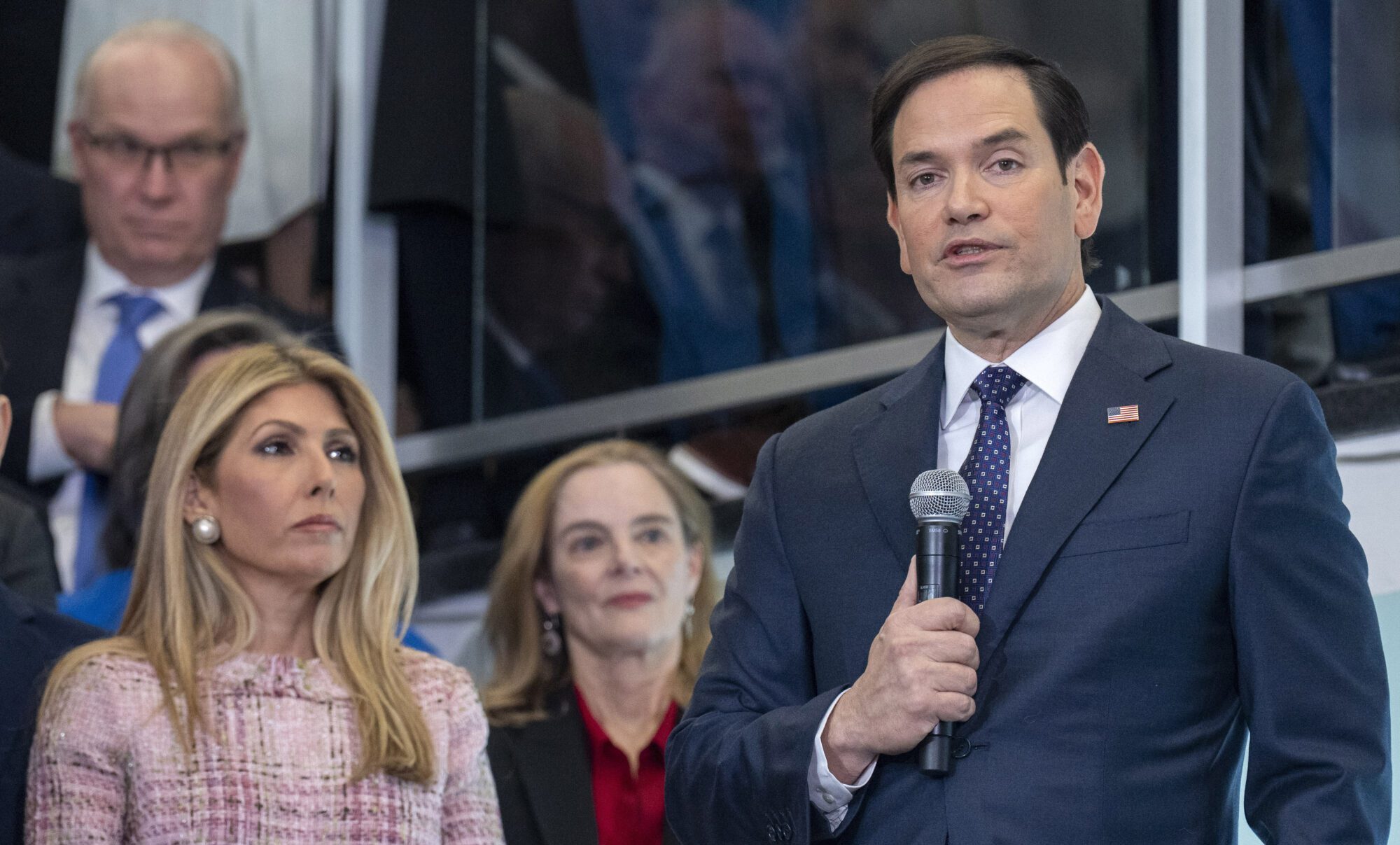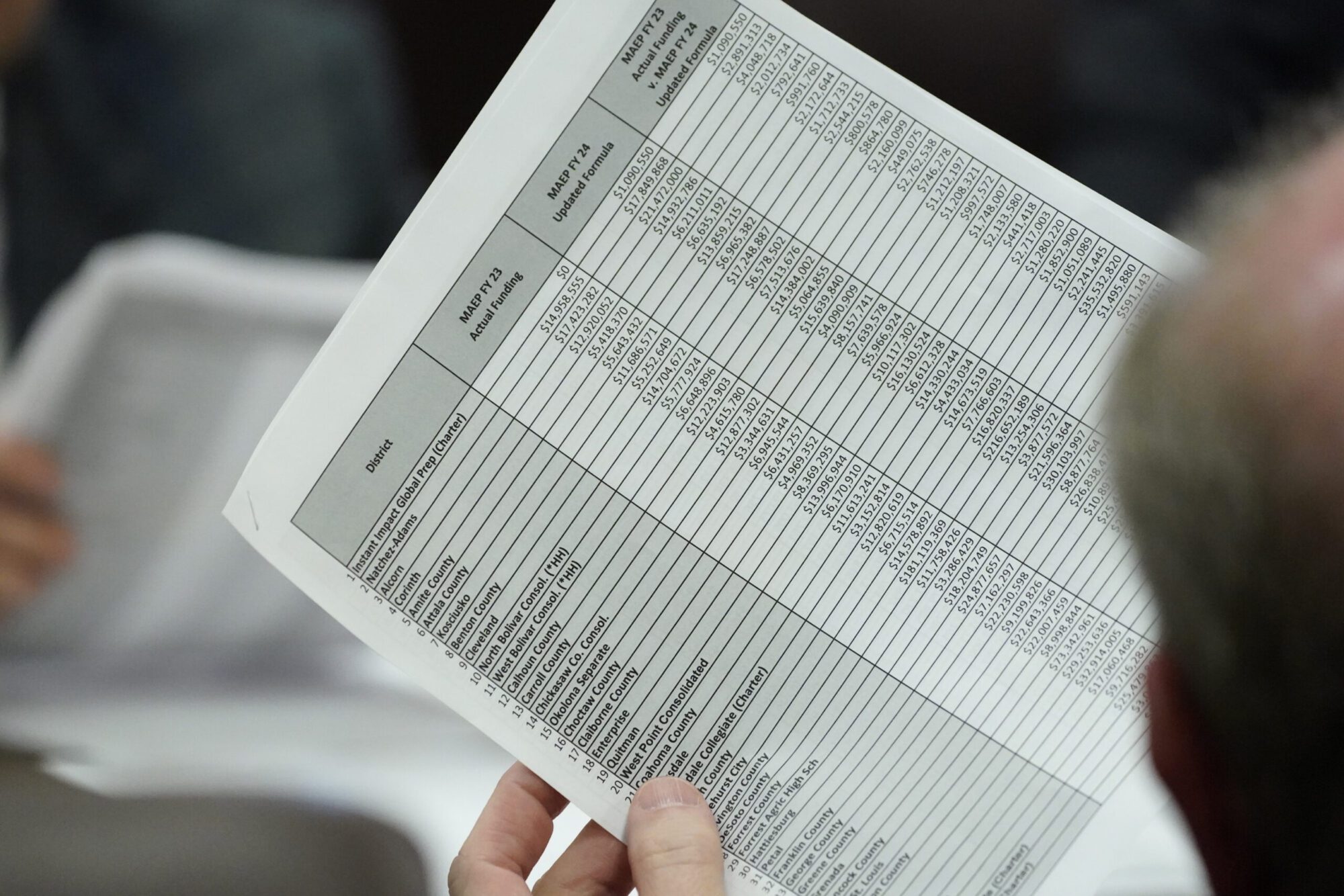
A Senate Appropriations Committee member reviews proposed legislation at the Mississippi Capitol in Jackson. (AP Photo/Rogelio V. Solis - Copyright 2023 The Associated Press. All rights reserved.)
Education advocates, Democratic gubernational candidate Presley back the Senate proposal that increases funding by $181 million.
On Monday, Mississippi Senate leadership unveiled a plan to change the state’s education funding formula, known as the Mississippi Adequate Education Program (MAEP). Among other tweaks, that change would increase state funding by $181 million this session.
The bill, which began in the House but was amended in the Senate, passed the full Senate on Tuesday – unanimously and without debate.
For more on the MAEP changes, click here.
Since the announcement of the proposed MAEP changes, many have spoken out on the proposal, offering their thoughts on the late-session Senate plan.
What They Are Saying in the House
Now that the legislation has passed the Senate, it returns to the House with the new language.
On SuperTalk’s Paul Gallo Show Tuesday morning, Speaker Pro Tempore Jason White (R) said the Senate reworking of the formula may be something the House wants to look at, but he said the House would look at “in time.” White did call the timing for the end of session proposal “troublesome.”

“If you take the new formula that they passed yesterday, by their words, it would need $181 million of new dollars. That’s over and above the $250 million new dollars we put in last year for teacher pay raises,” White said. “Changing a formula that’s been around for over twenty five years, spending almost $200 million new dollars on anything in the state budget, is troublesome here right at the end of session.”
White said the House passed a MAEP formula rewrite a couple of years ago, “and of course it failed in the Senate.”
“I’m anxious to look at the bill and see what they want to do,” Rep. White said. “I think it’s a good talking point going forward.”
State Representative Richard Bennet (R), House Education Chairman, and State Representative Kent McCarty (R), House Education Vice-Chairman, spoke with Magnolia Tribune on Tuesday about the Senate’s proposal. The two said the changes were news to them.

“To this day, they have not said one word to me about it,” Rep. Bennett said.
Bennett explained that Speaker of the House Philip Gunn (R) and Representative McCarty have also not heard from the Senate about this proposal.
“I haven’t seen the bill, haven’t had a chance to look at the bill,” Rep. Bennett said. “One of the things I’m definitely disappointed in is they took a bill that we sent over there that had a $3,000 pay raise in it for teacher assistants.”
Bennett said to take that $21 million away from teacher assistants who are making $17,000 to say “you’re fully funding a formula is not fair and not right to those teacher assistants.”
“We have not seen the details of the bill, I’ve heard there’s a hold-harmless in there for the first year, I don’t know if that’s true or not, if it is, then that tells me there’s something flawed with this formula too because why would you have to hold people harmless for the first year,” Bennett said.
“And again, I haven’t seen it so I don’t know for sure. They haven’t talked to us about it, why they haven’t talked about it, I don’t know,” Bennett continued. “The more eyes that you have on a piece of legislation, the better legislation you’re going to have in the end.”
Rep. Bennet added the Senate version may be a good plan, saying, “I don’t know.”
“We just got to look at it on its merits and I don’t know if we have time now, deadline’s tomorrow,” Bennett concluded.
Rep. McCarty said one thing he noticed in the hearing is that the numbers that the Senate has are not really indicative of what schools received last year. He added that last year, lawmakers held out the teacher pay raise from the formula so the state could 100% fund the teacher pay raise. McCarty said they paid it as a separate line item.
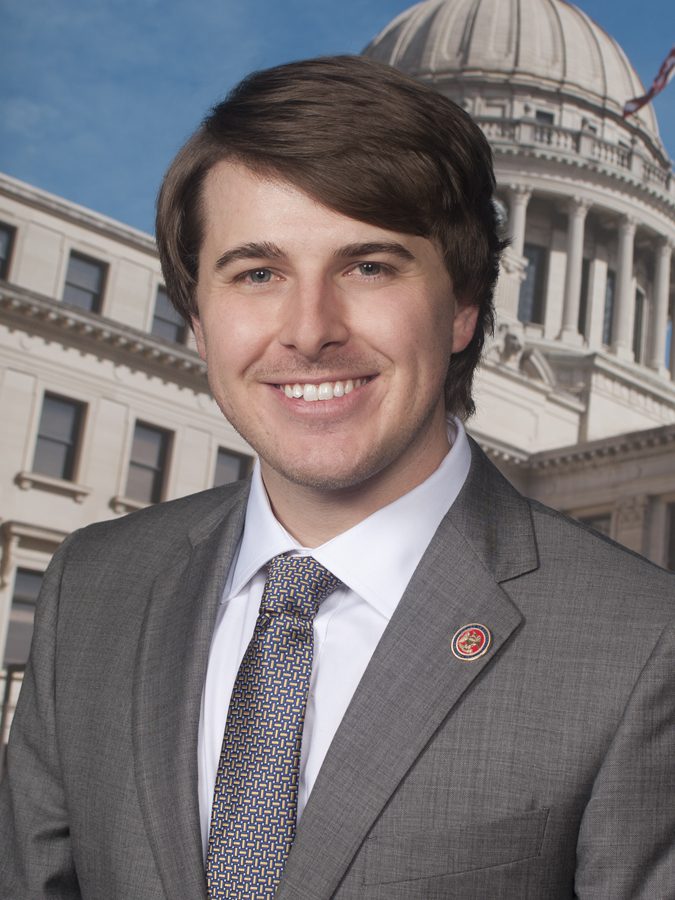
The Education Vice Chairman noted that on the spreadsheet the Senate presented Monday, the column of what was received from MAEP last year doesn’t include the money received from the teacher pay raise.
“If you look at the new MAEP,” McCarty said. “That is what they received from the formula plus teacher pay raise last year plus the increase. So, the increases are not actually, they’re not nearly as dramatic as it looks like.”
McCarty said there would be a few districts that would be receiving less money when you factor in the full scope of what they recieved last year.
“Again, that’s one of those things where we could have gotten to the numbers before today, I mean we’re still waiting, we still haven’t had a conversation with them,” McCarty said. “I’m sure we’ll have that conversation later, but the time for that, as the Chairman said, months ago or at minimum weeks ago.”
“I don’t know that looking at the MAEP formula and just putting ourselves in a box and saying the only way we can fund education is by looking at tweaks to this formula, you know if we’re looking to do that, why not look at all the options and hear from everybody,” McCarty said.
He explained that one of the reasons the teacher pay raise legislation was one of the best pieces of legislation because they let the process work.
“We came with a plan early in the session, they came with a plan early in the session, we met consistently, we talked with their leadership, we worked with the chairman, we had meetings, we had a public conference,” McCarty said. “We ended up with a better bill than I ever could have imagined because we went through the process like we’re supposed to.”
McCarty said when you look at the bad bills that are passed, they are bills that have no debate.
“We have plenty of opportunities, plenty of weeks, where we sit around early in the session and we’re like when is this going to get going? This could have been discussed then,” McCarty said. “At the end of the day, we want to do whatever is best for students, and whatever is best for teachers, and whatever is best for education in Mississippi, we’re for it.”
The Politics at Play
Mississippi Governor Tate Reeves (R) warned lawmakers on Tuesday to be very cautious of a last-minute change in the MAEP funding formula that “seems to have unanimous support amongst Democrats in Senate and liberal activist groups.”
“Very, very cautious,” Governor Reeves said. “Instead of funneling more money to the District offices—where our kids won’t see it—why not another teacher pay raise? Put it in the classroom!”
Northern Public Service Commissioner Brandon Presley (D), a candidate for Governor, took the chance to swipe at Reeves while commending both Republicans and Democrats in the state Senate for working together on the issue.
“As usual, Tate Reeves is now attacking this bipartisan effort and playing politics once again,” Presley said. “Tate Reeves has shown over and over he cares more about his political career than our students. He won’t lead. As Governor, I will.”
Public Policy and Advocacy Groups
The Parents Campaign urged their members to contact their legislators to show support of the Senate’s plan “for minor technical amendments to the MAEP formula alongside a commitment to fully fund public schools this year.”
“Lots of enthusiasm about the Senate plan to fully fund public schools (just passed unanimously in the Senate)!” the group tweeted Tuesday.
Mississippi Association of Educators (MAE) President Erica Jones said they are happy that MAEP looks like it’s on track to be fully funded in the coming year.
“Not only that, we believe the formula changes will provide the ability for the program to be fully funded going forward – barring an unforeseen, significant economic recession,” Jones said. “We believe we may be witnessing a new day in public education funding – something we have hoped for a very, very long time. Stronger schools make a stronger Mississippi.”
Jones added that she and her team are grateful to the Senators who asked them questions, listened to the many MAE members who contacted them, and produced what they believe to be a workable plan that will be welcomed by educators and supporters of public education across Mississippi.
Douglas Carswell, CEO and President of the Mississippi Center for Public Policy (MCPP), said it is great news that Mississippi’s schools are going to be fully funded. However, Carswell explained, we also need to recognize that shoveling a bit more money into the school system in an election year is not going to fix our state’s education system.
“MAEP, or the Mississippi Adequate Education Program, has not been adequately funded for far too long. This is only the third or fourth time in three decades that MAEP has been fully funded,” Carswell said. “Across the river in Arkansas, the new Governor Sarah Huckabee Sanders is putting a lot more cash into their school system. So much so, in fact that by 2025 Arkansas teachers will have a minimum salary of $50,000 a year. At the same time, Governor Sanders will give every family in the state control over their share of their kid’s tax dollars.”
Carswell said Mississippi leaders should be using additional education funding as leverage to secure those kinds of changes to empower parents.
Forest Thigpen, Senior Advisor for Empower Mississippi, said the current funding formula is unnecessarily complex and inefficient, and very few people understand how it’s calculated.
“It needs to be more transparent and more focused on students’ needs,” Thigpen said. “At this point, we haven’t seen the Senate proposal, but based on the chairman’s description, it sounds like they want to keep the complex formula but pour more money into it.”




